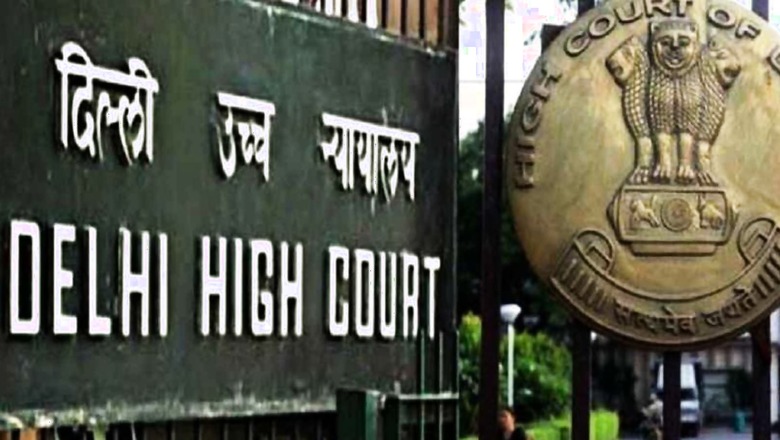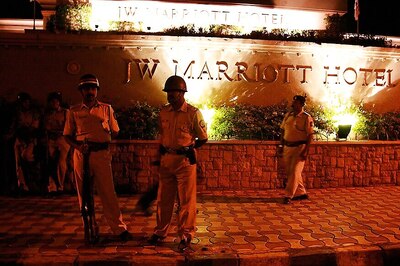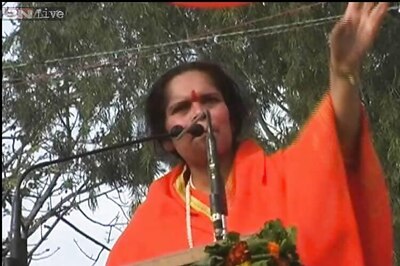
views
The Delhi High Court Tuesday dismissed a plea seeking to vacate the stay granted on an order directing the AAP government to decide and formulate a policy on the implementation of Chief Minister Arvind Kejriwal’s announcement that if a poor tenant was unable to pay rent during the COVID-19 pandemic, the state would pay it. A bench of Chief Justice Satish Chandra Sharma and Justice Subramonium Prasad noted that the petitioner tenant had already challenged the stay order before the Supreme Court which had dismissed it on February 28. This court does not find any reason to vacate the stay granted on September 27, 2021, the bench said.
The court also rejected the claim of the tenant that the stay order was passed ex-parte and noted that the counsel’s appearance was marked in the order. “When the counsel for the tenant urged the court to grant some interim protection,” the bench said, “you want us to pass an order against all the landlords of Delhi.”
The counsel said he was only asking for the formulation of a policy in this regard. To this, the bench said, “can we force them to form a policy. There are 100s of things said in the election manifesto, can we force them to do so?” The court was informed by the Delhi government counsel that the same tenant has approached the Supreme Court against the stay order passed by the high court and this fact was concealed from the court.
The bench observed that it was unfortunate that the petitioners filed the application in the high court to vacate the stay even after filing a similar plea in the Supreme Court. The apex court, while dismissing the plea on February 28, had perused the speech of Kejriwal and had said promissory estoppel will not lie on the basis of speech. There has to be some policy, a notification has to be issued in this regard.
Promissory estoppel is a doctrine in contract law that stops a person from going back on a promise even if a legal contract does not exist. The top court had said that it was an interlocutory order passed by the Delhi High Court and therefore it was not interfering with it. On September 27, last year, the high court issued notice on the Delhi government’s appeal against the order passed by a single judge, who also held that a Chief Minister’s promise to citizens is enforceable.
The notice was issued to petitioners — daily wagers and workers — on whose petition the single judge had passed the order which has been challenged by the Delhi Government. The bench had said that irreparable loss would be caused to the appellant if an order of stay is not passed. The Delhi government counsel had claimed that in the backdrop of the outbreak of the pandemic, a fervent appeal was made by the Chief Minister to the public at large not to coerce the tenants into paying rent. However, the same was found to be a sort of a promise by the single judge. The lawyer representing the petitioners — daily wagers and workers who sought to enforce the promise before the single judge, had opposed the grant of any order of stay and had said that they had no means to pay the rent amount.
In its appeal, the Delhi government has submitted that expecting a government to implement a truncated sentence from the press conference held by the chief minister, devoid of its context and in the face of developments which demonstrate that the eventuality for which the assurance was made never actually transpired, is grossly inequitable. The facts and circumstances surrounding the truncated statement of the chief minister on March 29, 2020, demonstrate that the manner in which the petitioners have allegedly acted is not reasonable in as much as no indiscriminate and unconditional assurance for payment of rent by the GNCTD during the lockdown was made by him, the plea said. On July 22, 2021, Justice Prathiba M Singh ruled that a Chief Minister’s promise to citizens was enforceable and directed the AAP government to decide within six weeks Arvind Kejriwal’s announcement that the state would pay rent on behalf of a poor tenant who is unable to do so on account of COVID19. Thereafter, two more weeks were granted.
The judge had opined that against the backdrop of a commitment made by the Chief Minister, a lack of decision-making or indecision was contrary to law. A statement given in a consciously held press conference, in the background of the lockdown announced due to the pandemic and the mass exodus of migrant labourers, cannot be simply overlooked. Proper governance requires the government to decide on the assurance given by the CM, and inaction on the same cannot be the answer, the single judge had said.
The judge had said that in the present case, the assurance was not a political promise, as was sought to be canvassed as it was not made as a part of an election rally but it was the statement made by the Delhi Chief Minister.
Read all the Latest News, Breaking News, watch Top Videos and Live TV here.




















Comments
0 comment